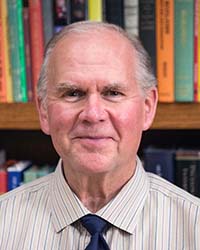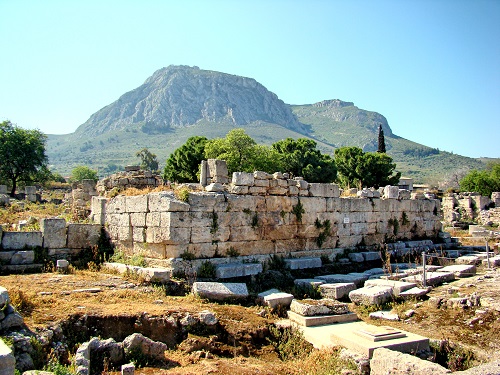

by Leon Mauldin
Synopsis: Luke tells the exciting story of how the gospel came to the wicked city of Corinth. There was great success in this place where the Lord told Paul, "I have many people in this city." Much archaeological excavation has been done at this site.
Luke narrates the preaching of the gospel at Corinth, along with interesting results, during Paul's second missionary journey (Acts 18). In what would no doubt seem to be a most unlikely place for success, due to Corinth's bad reputation for its lewdness, immorality, and many vices, the Lord told Paul, "I have many people in this city" (v. 10). He was speaking of those who would turn from sin to the Lord Jesus Christ. This number included Crispus, the ruler of the synagogue. "And many of the Corinthians, hearing, believed and were baptized" (v. 8). Paul continued to teach and preach at Corinth for one and a half years (v. 11) and remained a good while longer (v. 18).
Later, on his third journey, Paul would write, "Do not be deceived; neither fornicators, nor idolaters, nor adulterers, nor effeminate, nor homosexuals, nor thieves, nor the covetous, nor drunkards, nor revilers, nor swindlers, will inherit the kingdom of God. Such were some of you; but you were washed, but you were sanctified, but you were justified in the name of the Lord Jesus Christ and in the Spirit of our God" (1 Cor. 6:9–11). Oh, what a difference the gospel makes!
The former lifestyle of the Corinthian Christians was not atypical of their culture, but reflected the societal mores of the first century. Increasingly, the culture of our day moves toward the same worldview and manner of life. To sum up: Materialism affirms that life and happiness are defined by the accumulation of material things. Existentialism/Individualism affirms that you determine what gives life meaning; the most important thing in the universe is you. Hedonism affirms the purpose of life is doing whatever brings you pleasure. Idolatry involves choosing a religion that meets your felt needs, that "validates" what you desire.
When they chose to obey the gospel from the heart (Rom. 6:17-18), when they submitted to the righteousness of God (Rom. 10:3), the Corinthians were washed by the blood of Christ, they were "set apart" as saints, belonging to Him, and they were justified, declared righteous, because they were forgiven. They had to make a choice, and they made the right choice. For the Gentiles among them, the choice usually involved turning "to God from idols to serve the living and true God" (1 Thess. 1:9). For many Jews, like Crispus, the choice involved loss of status, peer approval, and in many cases loss of friends and family. Unfortunately, not everyone was willing to make that choice (John 12:42-43).
There are some interesting points here where archaeology intersects with the biblical record. Our photo shows the bema (judgment seat) in the foreground. Paul stood trial here before Gallio, who was proconsul of Achaia from June AD 51 to May 52. Gallio was prudent enough to see that Paul was not a lawbreaker and dismissed the charges (Acts 18:12-17). In the background is the Acrocorinth, where a temple to the goddess Aphrodite once stood, housing sacred prostitutes. Though the temple was gone by the time of Paul, its pervasive degrading influence was very much still there at Corinth.
Also pictured here is the "Erastus Inscription." Erastus was "the city treasurer of Corinth (a steward of financial affairs, possibly a slave or freedman of some wealth and an important man in the Corinthian community), who sends greetings with Paul to the church in Rome (Rom. 16:23)" ("Erastus," Baker 714.). Many students/scholars believe the Erastus in this inscription is the brother mentioned in Romans 16:23.
Our photo of the synagogue inscription reminds us of the Jewish presence in Corinth, which is referenced in the text (Acts 18:4ff).
Elwell, Walter A., and Barry J. Beitzel. Baker Encyclopedia of the Bible. Grand Rapids, MI: Baker Book House, 1988.
"Erastus Inscription" Photo © by Mike Willis, 2011. All other Photos © by Leon Mauldin, 2017.
Author Bio: Leon has worked with the Hanceville church of Christ in Hanceville, AL for 29 years. He and his wife, Linda, have three children and eight grandchildren. The church's website is hancevillechurchofchrist.com. Leon's Message Board, devoted to Bible History and Geography, is bleon1.wordpress.com. Info for his biblical tours is at mauldinbiblelandtours.com. He can be reached at leon.mauldin@gmail.com.
